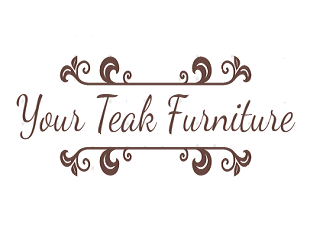A Growing Problem for Online Sellers
Sellers on Etsy and eBay are no strangers to tough competition. They work hard to make unique products, ship orders on time, and earn positive reviews. Good feedback is the lifeblood of their small businesses. But lately, some sellers have shared stories that sound more like bullying than healthy competition. They say they’ve received sudden bursts of negative reviews after refusing “collaboration” requests or attempts by rival sellers to swap positive feedback.
In these online marketplaces, reviews matter. A higher rating can push you to the top of search results, bringing more eyes to your products. A few one-star reviews, on the other hand, can scare potential buyers away. This is why the sudden appearance of negative comments can feel like a punch in the gut. Sellers who once enjoyed steady traffic and sales might see them drop overnight.
When Rivals Turn Nasty
The problem often starts when a rival seller contacts an Etsy or eBay shop owner. They might suggest working together or trading positive reviews to boost each other’s ratings. Some go even further, asking for discounts, freebies, or special favors. When the targeted seller politely refuses, things turn sour. Suddenly, fake buyer accounts appear and leave harsh, one-star reviews. Sometimes, these reviews complain about problems that never happened, like late shipments or poor-quality items. Other times, they use rude language or make no sense at all.
This pattern has been reported by sellers in community forums and on websites like EcommerceBytes. These are not rare, one-off cases. While exact numbers are hard to find, enough sellers have spoken up to make it clear that this is a known issue. It’s not only about the hurt feelings—this can affect a seller’s income. Studies have shown that even a small drop in a seller’s rating can lead to fewer sales. Buyers trust reviews, and when they see negative feedback piling up, they might choose another shop.
The Power of Online Reviews
Online shopping depends on trust. According to various surveys, around 80% or more of online buyers read reviews before making a purchase. A single five-star review might not mean much, but a pattern of positive feedback builds confidence. When a seller’s rating suddenly falls from 4.8 to 4.3, it can mean a noticeable drop in sales. Just a half-star difference can impact a business’s bottom line.
Sellers know that maintaining a high rating is key. That’s why they feel so helpless when rivals attack their ratings with fake negative reviews. It’s like someone slashing a car’s tires in a race. Instead of competing fairly by offering better products or nicer packaging, these bullies try to sabotage their opponents.
Platforms Trying to Keep Up
Etsy and eBay say they have rules against fake reviews. They encourage sellers to report suspicious behavior. They might remove reviews that break their guidelines, especially if there’s proof the reviewer never actually bought anything. But with millions of listings and even more reviews, it’s hard to catch every bad player. Some sellers feel that the platforms could do more. They say the process is slow and often frustrating.
It’s not much easier on other platforms. Business owners sometimes wonder how to handle nasty comments elsewhere and search phrases like delete a google review in hopes of finding a quick fix. On Etsy and eBay, the challenge is to prove that a review is fake or placed by a rival. Without solid evidence, the platforms might not act. In the meantime, the seller’s rating suffers, and potential customers vanish.
Impact on Small Businesses
These attacks don’t only affect the seller’s reputation. They hit their wallet. Many Etsy and eBay sellers run small, home-based businesses. Some rely on this income to pay bills or support their families. A drop in sales means less money for rent, groceries, or supplies. It can also lead to stress, late-night worry, and lost sleep.
One survey found that about 70% of online shoppers consider reviews as important as a personal recommendation from a friend. When fake negatives appear, it’s like that trusted friend suddenly changing their mind and telling you to stay away. That hurts, not only financially but also emotionally. Some sellers report feeling nervous every time they check their feedback, fearing they’ll see another random attack.
Fighting Back: Tips for Sellers
Document Everything
If you suspect that a rival seller is behind sudden negative reviews, start gathering proof. Take screenshots of messages, emails, or suspicious comments. Write down dates and details. Evidence is key when reporting the issue to Etsy or eBay.
Report Suspicious Activity
Don’t hesitate to contact the platform’s support team. Explain the situation clearly and provide the evidence you collected. While results vary, being polite and persistent can sometimes lead to reviews being removed. Even if it takes time, showing that you’re serious might help in the long run.
Build a Strong Reputation
Encourage your happy customers to leave honest reviews. The more genuine positive feedback you have, the less impact a handful of fake negatives will have. Potential buyers might notice if one negative comment stands out as odd in a sea of praise. Also, consider following up with customers and offering excellent customer service. Over time, a strong record can outweigh short-term hits.
Respond Calmly to Negative Reviews
When a suspicious review appears, consider replying in a calm, professional tone. Don’t accuse the reviewer of being a fake right away. Instead, say something like, “We have no record of this purchase. Could you share more details so we can help?” Future buyers might see your calm response and realize the review is fishy.
Consider Legal Action
In extreme cases, if you can identify a competitor who is behind the fake reviews, you might consider talking to a lawyer. While this can be expensive and not always practical, it’s worth knowing your options. Laws against defamation or fraud could apply if you have solid proof.
The Future of Review Reliability
As long as online reviews matter, some people will try to cheat. Etsy and eBay will need to improve their systems, maybe using more advanced tools to spot suspicious patterns of negative feedback. Sellers, in turn, will learn how to protect themselves, gather evidence, and push back.
Consumers can also play a role. By learning to read reviews with a bit of caution, they can spot patterns that don’t ring true. When buyers learn to trust their instincts and consider the entire feedback history, they help honest sellers thrive.
Hope and Caution
While the problem is real and serious, not every competitor is out to sabotage others. Most sellers want to succeed by offering good products and kind service. But it only takes a few bad apples to create stress and fear.
By staying informed, taking steps to protect their reputation, and pushing platforms to improve, Etsy and eBay sellers can continue doing what they love. In the end, honest businesses usually shine through. The truth has a way of rising to the top, even in a sea of suspicious one-star ratings.

